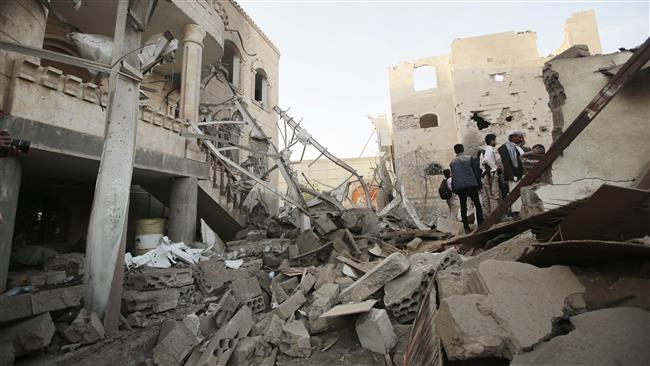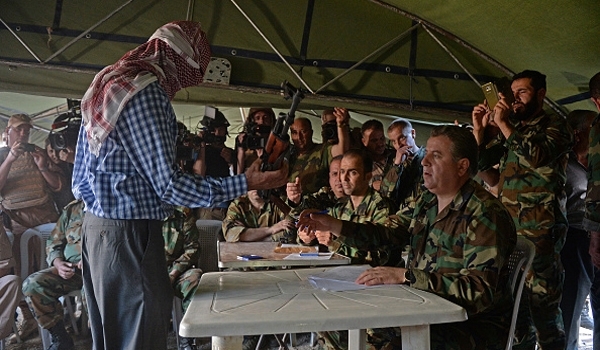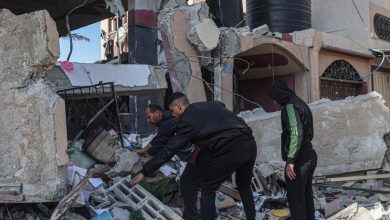Saudi-led coalition killed over 500 Yemeni kids in 2016: UN draft report


A new draft report by UN Secretary General Antonio Guterres has warned that the Saudi-led coalition committed “grave violations” of human rights against Yemeni children in 2016, killing 502 and injuring 838 others during their brutal military campaign there.
“The killing and maiming of children remained the most prevalent violation” of children’s rights in Yemen, the 41-page confidential draft report obtained by Foreign Policy said.
“In the reporting period, attacks carried out by air were the cause of over half of all child casualties, with at least 349 children killed and 333 children injured,” the draft report said.
According to Foreign Policy, the chief author of the new UN draft report, Virginia Gamba, intends to recommend the Saudi-led coalition be added to a list of countries and entities that kill and maim children. Guterres, who will make the final report public in late August, will make the final decision about the issue.
Saudi officials, under US support, are privately lobbying the UN to hold high-level meetings before publishing the report, calling on the world body not to list the Saudi-led coalition in the report, Foreign Policy said.
The Saudi mission to the UN refused to respond to a request for comment.
In 2016, Saudi Arabia was included on the list which said that the Riyadh-led coalition was responsible for over half of the 1,953 child casualties in the Yemen war.
In response, Saudi Arabia threatened to stage a walk-out by Arab countries from the UN and cut hundreds of millions in aid to the international organization if the coalition was not omitted from the rogues list.
The then UN chief, Ban Ki-moon, agreed to temporarily delist the coalition, citing concerns that the loss of donations by Persian Gulf kingdoms could harm the UN’s anti-poverty programs.

The Saudi-led war is aimed at reinstating the former president, Abd Rabbuh Mansur Hadi, a staunch ally of Riyadh, and undermining the country’s Houthi Ansarullah movement.
The Houthi movement has been running state affairs since 2014, when Hadi resigned and fled to Riyadh before returning to Aden later. The movement has also been defending the country against the Saudi-led offensive.
The protracted war, which has also been accompanied by a naval blockade, has already killed over 12,000 Yemenis, according to the latest figures released by a local monitoring group.
More than two years in the Saudi war, Yemen is now dealing with “the largest humanitarian crisis in the world.”
On Monday, the World Health Organization (WHO) said in a report that over half a million Yemenis have been affected by cholera since the epidemic broke out in late April, as the waterborne disease has killed nearly 2,000 others in the impoverished nation during the past four months.
Last month, the UN announced that more than 17 million people in Yemen were food-insecure, of whom 6.8 million were severely food-insecure and in need of immediate aid.
Buy food or treat cholera?
In a Wednesday report, the UK-based charity organization Oxfam warned that the humanitarian catastrophe caused by the Saudi-led war has forced many Yemenis to make life or death choices between treating cholera and buying food.
“Yemenis, already on the tipping point after more than two years of war, are now being forced to choose between treating cholera and putting food on the table,” said Oxfam titled “Yemen: Catastrophic Cholera Crisis.”
Millions of Yemeni people have been forced to sell their personal belongings and borrow to buy food and pay for cholera treatment, the report said.
Many seek medical treatment only when it is already too late, and those who are affected by the disease are only able to afford the costs by further cutting the amount of food they buy, the report added.

“Each day that passes brings more suffering to the unbearable lives of the Yemeni people. The world is shamefully failing them. A new disaster after another is leading to a man-made catastrophe in Yemen and thousands of people face stark live or die choices every day. What more needs to happen in Yemen for the international community to properly respond?” said Oxfam’s Country Director in Yemen Shane Stevenson.
“It is now or never the time to bring back [warring] parties to the negotiations table and to fully fund the humanitarian response. Waiting any longer will lead to more death and devastation of which the world will be shamefully complicit,” he added.
The cholera outbreak in the country is now spreading at a slower rate, but the situation is likely to deteriorate during the current rainy season in the country. Moreover, several factors directly caused by the Saudi-led war, including lack of clean water and healthcare infrastructure as well as prolonged period of hunger and malnutrition, have paved the grounds for outbreak of other diseases, Oxfam said.
Hajjah and Al-Hudaydah governorates are among the four worst regions in terms of food insecurity and among the three governorates with the highest numbers of suspected cholera cases, the report added.
The report warned the Yemeni people’s ability to make a living has “collapsed as the economy has been decimated,” noting that salaries in the public sector have not been paid for nearly a year and over 30,000 health workers have not been paid or paid only partially.
The crisis has led to “devastation of the health sector” with only 45 percent of the health facilities fully functional, the report added.
Oxfam urged on all warring parties to commit to an immediate ceasefire and called on the global community to ensure that humanitarian plans for Yemen are fully funded and that both the cholera and food crisis are urgently tackled.




